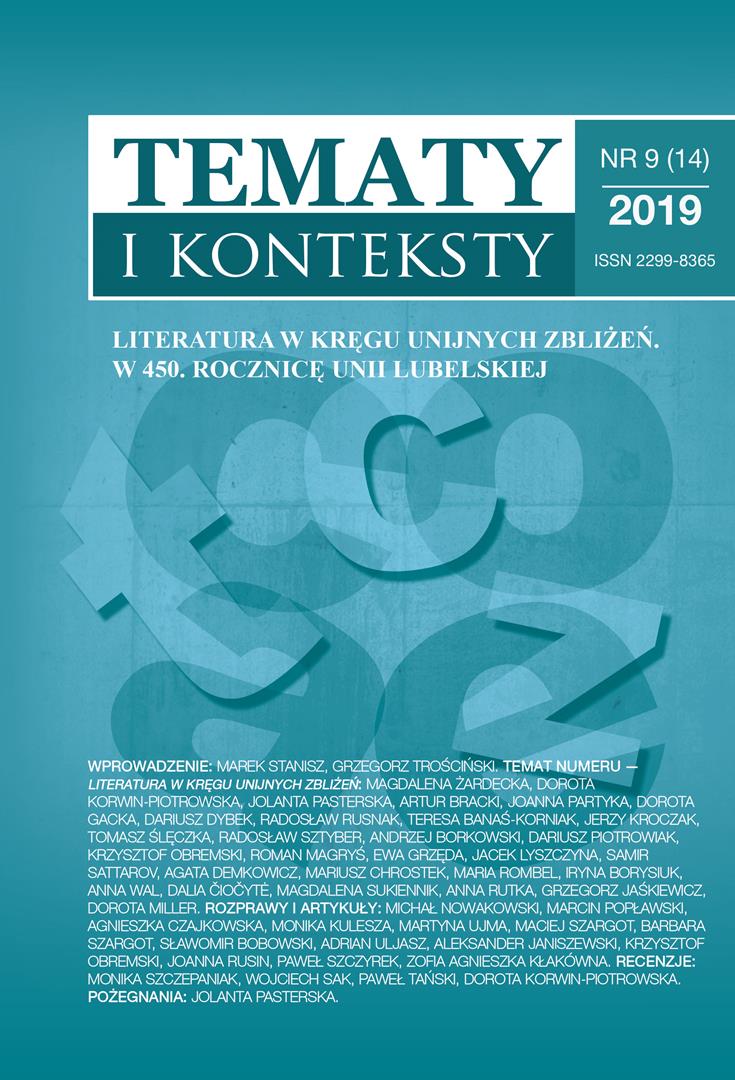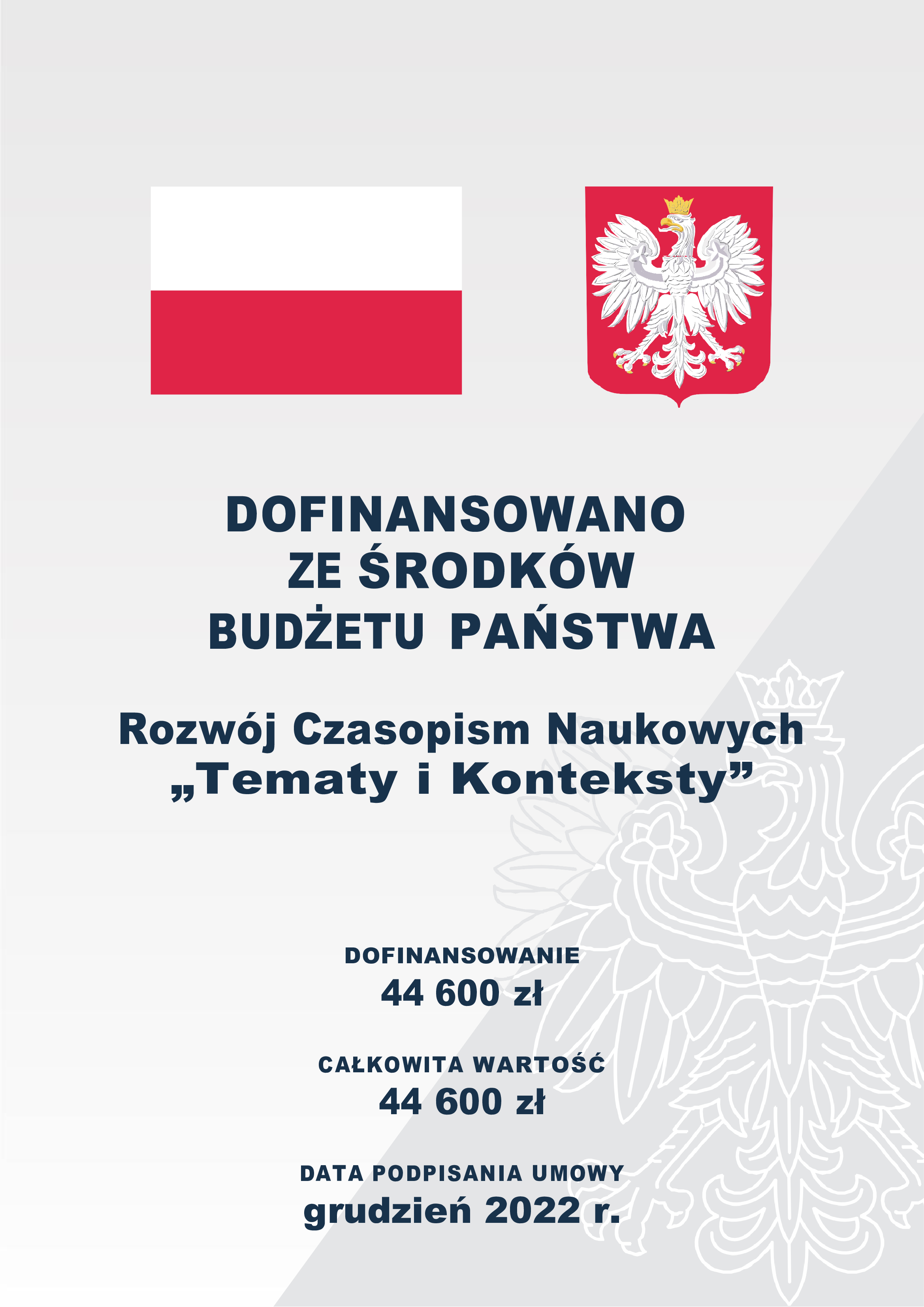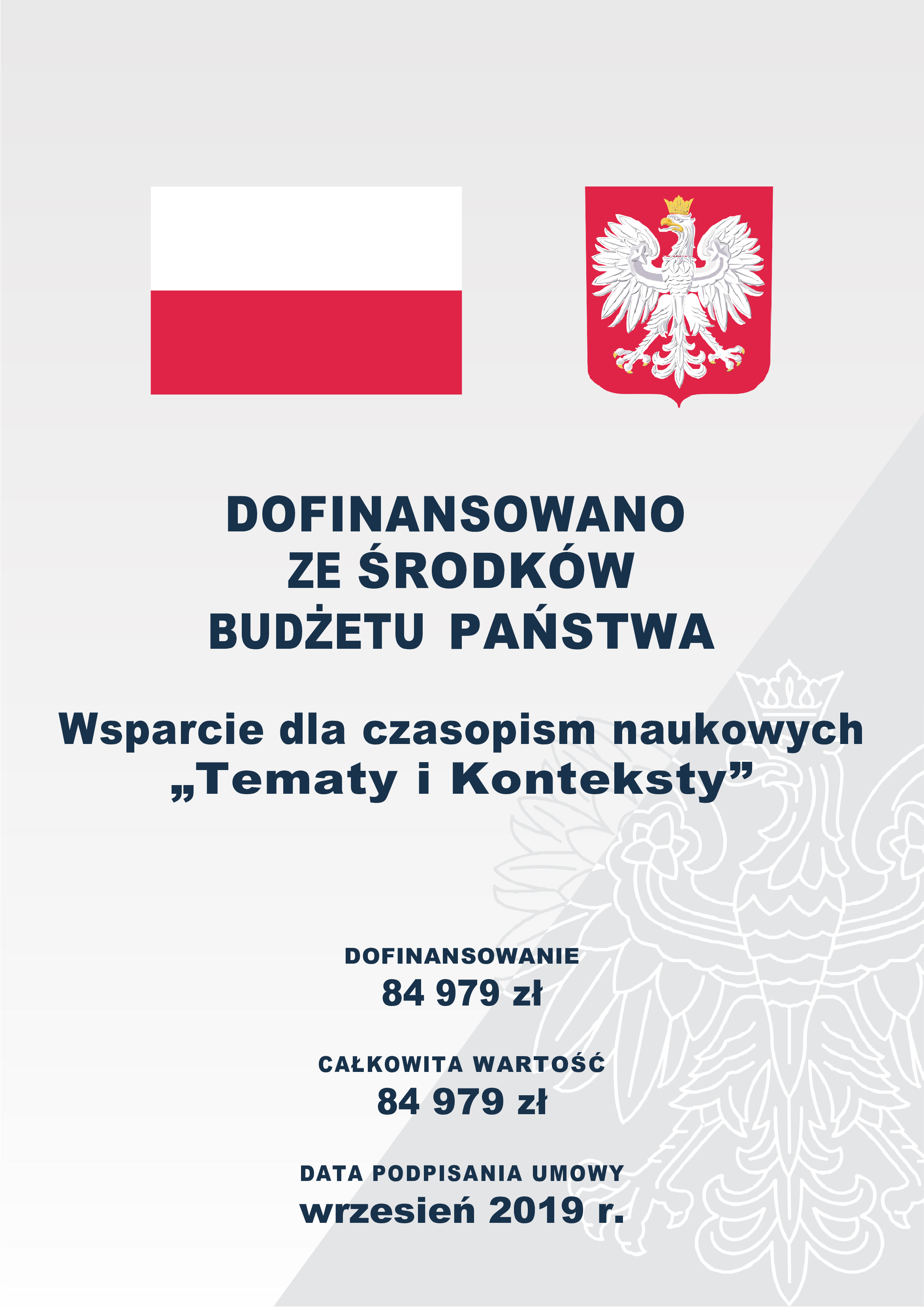Europe without Nations. Robert Menasse’s Contribution to the Shaping of European Union’s Future in the Novel Die Hauptstadt
Europa ohne Nationen. Robert Menasses Beitrag zur Gestaltung der Europäischen Union der Zukunft in Die Hauptstadt
DOI:
https://doi.org/10.15584/tik.2019.29Keywords:
Robert Menasse, Europe, European Union, Europe of Regions, novel about Europe, talking about Europe, nationalism, German-language literature, 21st-century Austrian novelsAbstract
Discussions on the condition of Europe and on the European idea among intellectuals, especially German-speaking writers, have a long and rich history. Goethe and Schiller already spoke about in the 18th century and Novalis in the 19th century, the latter pointing to the European cultural community. After the experiences of the First and Second World Wars, of the cruelty and barbarity of warfare, of dehumanization and mass murder, the discussions on the essence of Europe revived. Richard Nikolaus Coudenhove-Kalergi and Heinrich Mann suggested the creation of a European Community which, although far from today’s European Union, in theory was supposed to serve as a protection against the repetition of nationalism and wars. In 1992 the European Union was founded on the groundwork of the EEC. Austrian-born Robert Menasse is another German-language writer who actively defends the European Union by proclaiming radical views, namely the departure from the nations and the creation of the Republic of Europe. His 2017 novel Die Hauptstadt (The Capital), awarded the Deutscher Buchpreis (German Book Prize) literary prize, is a tribute to Europe and an important contribution to the discussion on the European community and its future. Through the mouth of his alter ego in the novel, Prof. Alois Erhart, Menasse calls for the rejection of the attachment to nations and the creation of Europe of Regions. The book is basically the first European novel (about the European Union) by a German-writing author with such a progressive message. In the novel, the author, shows, against the background of the life of EU officials in Brussels, the reality of Europe, the understanding of national and European identity and the burden of the Holocaust and the bestiality of nationalism for contemporary Europeans. The present paper discusses these views and inscribes them in the long lasting debate on Europe, indicating at the same time the progressiveness of the European idea.
Downloads
References
„Wir sind Feuilleton-Juden“, Spiegel-Gespräch von Volker Weidemann mit dem Geschwisterpaar Eva und Robert Menasse (Spiegel Nr. 2 2018, S. 110–114)
Dorfles G., Der Kitsch, Tübingen, Studio Wasmuth: 1969.
Gauß K.-M., Europäisches Alphabet, Wien, Paul Zsolnay Verlag: 1997.
Horkheimer M., Th. Adorno, Dialektik der Aufklärung, Frankfurt am Main, Fischer-Taschenbuch-Verlag: 2000.
Kaiser K., Robert Menasse, [in] A. B. Kilcher (Hrsg.), Lexikon der deutsch-jüdischen Literatur, Frankfurt am Main, Suhrkamp Verlag: 2003.
Killy W., Versuch über den literarischen Kitsch, [in] J. Schulte-Sasse (Hrsg.), Literarischer Kitsch. Texte zu seiner Theorie, Geschichte und Einzelinterpretationen, Tübingen, Max Niemeyer Verlag: 1979, S. 42–64.
Menasse R., Über die Feigheit der europäischen Politiker, Die Zeit, 30.09.2011 Menasse, R., Der Europäische Landbote, Die Wut der Bürger und der Friede Europas oder Warum die geschenkte Demokratie einer erkämpften weichen muss, Wien, Paul Zsolnay Verlag: 2012.
Menasse R., Die Hauptstadt, Berlin, Suhrkamp Verlag: 2017.
Menasse R., Eine kurze Geschichte der europäischen Zukunft. Warum wir erringen müssen, was wir geerbt: das Europa der Regionen, [in] The European. Das Debatten-Magazin vom 8. Juni 2015.
Menasse R., Heimat ist die schönste Utopie. Reden (wir) über Europa, Berlin, Suhrkamp Verlag: 2014.
Menasse R., Permanente Revolution der Begriffe: Vorträge zur Kritik der Abklärung, Berlin, Suhrkamp Verlag: 2009.
Menasse R., U. Guérot, Kritik der Europäischen Vernunft: Mit dem ‚Manifest für die Begründung einer Europäischen Republik‘, Siegburg 2017.
Remarque E. M., Im Westen Nichts Neues, Köln, Verlag Kiepenheuer & Witsch: 2006.
Thiess F., Die griechischen Kaiser. Die Geburt Europas, Hamburg-Wien, Paul Zsolnay Verlag: 1960.
Waldmann G., Literarischer Kitsch als wertungsästhetisches Problem, [in] J. Schulte-Sasse (Hrsg.), Literarischer Kitsch. Texte zu seiner Theorie, Geschichte und Einzelinterpretationen, Tübingen, Max Niemeyer Verlag: 1979, S. 89–120.
Żyliński L., Tożsamość i przyszłość. Wizje Europy XIX i XX wieku w eseistyce pisarzy niemieckich, [in] L. Żyliński (Auswahl und Bearbeitung), Europejskie wizje pisarzy niemieckich XX wieku, Poznań, Wydawnictwo Poznańskie: 2003.
Downloads
Published
How to Cite
Issue
Section
License
Copyright (c) 2019 Tematy i Konteksty

This work is licensed under a Creative Commons Attribution-NonCommercial-NoDerivatives 4.0 International License.




